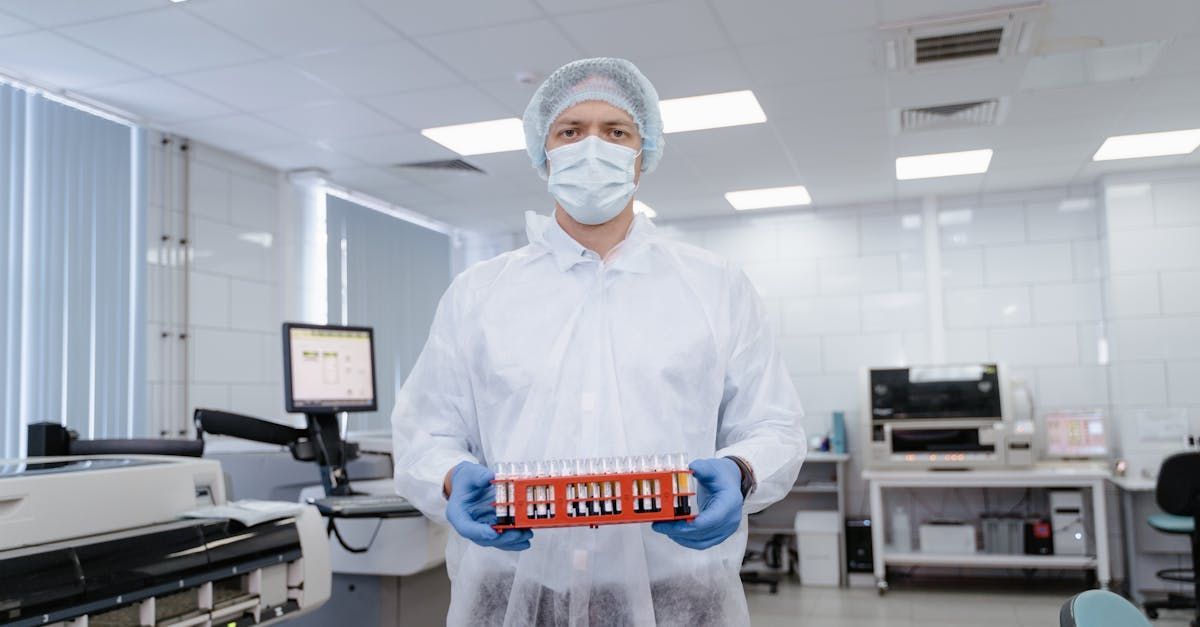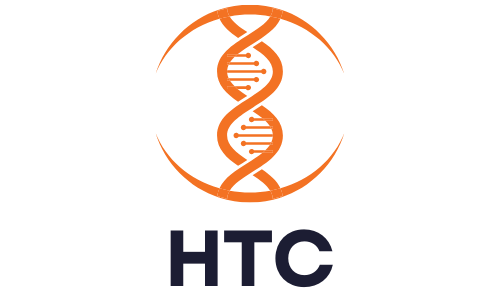Venture Capital and HealthTech: Insights and Strategies
The rise of health technology, or HealthTech, is revolutionizing the way healthcare is delivered and managed. HealthTech encompasses a wide array of innovations, from telemedicine and digital health records to wearable devices and AI-driven diagnostics. These technologies are enhancing patient care, improving health outcomes, and increasing the efficiency of healthcare systems worldwide.
Venture capital (VC) plays a crucial role in fostering innovation within the HealthTech sector. By providing essential funding, strategic guidance, and valuable networks, venture capitalists help HealthTech startups navigate the challenges of bringing new technologies to market. This support accelerates the development and adoption of cutting-edge solutions, driving the transformation of healthcare.
The purpose of this blog is to explore the dynamic landscape of HealthTech and the pivotal role of venture capital in this space. We will delve into insights and strategies for successful investments in HealthTech, providing valuable information for investors looking to capitalize on the growth and innovation within this sector.
The Growing HealthTech Market
Health technology, or HealthTech, refers to the application of technology to improve the delivery, efficiency, and quality of healthcare services. It encompasses a broad range of innovations, including telemedicine, digital therapeutics, wearable devices, electronic health records (EHRs), and artificial intelligence (AI) in healthcare. HealthTech aims to enhance patient care, streamline administrative processes, and facilitate better health outcomes through technological advancements.
The Role of Venture Capital in HealthTech
Venture capital (VC) plays a pivotal role in the development and success of HealthTech startups. These firms provide more than just financial support; they offer strategic guidance, mentorship, and valuable networking opportunities that can significantly accelerate a startup's growth and market entry.
1. Providing Capital for R&D and Scaling Operations Venture capital firms inject crucial funds that enable HealthTech startups to invest in research and development (R&D), refine their technologies, and scale their operations. This financial support is vital for startups to bring innovative health solutions to market and expand their reach. For example, the infusion of VC funding allows startups to hire top talent, invest in cutting-edge technology, and navigate the regulatory landscape more effectively.
2. Strategic Guidance and Mentorship Beyond capital, venture capitalists offer strategic advice and mentorship to HealthTech entrepreneurs. They help shape business strategies, refine value propositions, and develop go-to-market plans. Experienced VCs bring a wealth of knowledge from their involvement in multiple startups, providing insights that can help new companies avoid common pitfalls and accelerate their path to success.
3. Networking Opportunities and Partnerships Venture capital firms facilitate valuable connections within the industry, linking startups with potential partners, customers, and other stakeholders. These connections can lead to strategic partnerships, collaborations, and pilot projects that are essential for validating technologies and expanding market presence. The network effect of VC backing can also enhance a startup's credibility, making it easier to attract additional investors and customers.
Several prominent venture capital firms have made significant investments in the HealthTech sector, driving innovation and growth. These firms include:
- Sequoia Capital: Known for its investments in companies like Apple, Google, and WhatsApp, Sequoia Capital has also backed HealthTech startups such as 23andMe and Guardant Health.
- Andreessen Horowitz (a16z): A leading VC firm with a focus on technology and life sciences, a16z has invested in companies like Apeel Sciences, Devoted Health, and Honor.
- Kleiner Perkins: With a strong portfolio in health and life sciences, Kleiner Perkins has supported companies like Livongo, Grail, and Oscar Health.
Challenges and Considerations for HealthTech Investors
HealthTech investors must navigate a complex regulatory landscape to ensure compliance with various healthcare regulations. Key regulations include:
- FDA (Food and Drug Administration): The FDA oversees the approval of medical devices, software as a medical device (SaMD), and certain digital health tools. Compliance with FDA regulations is crucial for bringing HealthTech innovations to market in the United States.
- HIPAA (Health Insurance Portability and Accountability Act): HIPAA sets national standards for the protection of patient health information. HealthTech companies must ensure that their technologies and data management practices comply with HIPAA requirements to safeguard patient privacy and data security.
- GDPR (General Data Protection Regulation): In Europe, the GDPR provides a comprehensive framework for data protection and privacy. HealthTech companies operating in or serving the European market must adhere to GDPR guidelines to ensure the lawful processing of personal data.
Investors should prioritize startups with strong compliance strategies to mitigate regulatory risks. Key considerations include:
- Regulatory Expertise: Assess whether the startup has in-house regulatory experts or consultants to navigate the regulatory environment effectively.
- Compliance Programs: Evaluate the startup's compliance programs, including policies, procedures, and training programs, to ensure adherence to relevant regulations.
- Audit Readiness: Determine if the startup is prepared for regulatory audits and inspections by reviewing their documentation and internal controls.
With the increasing digitization of healthcare, ensuring robust cybersecurity measures is paramount. HealthTech companies must protect sensitive patient data from breaches and cyberattacks. Key aspects of cybersecurity include:
- Data Encryption: Implementing strong encryption protocols to protect data both in transit and at rest.
- Access Controls: Establishing strict access controls to ensure that only authorized personnel can access sensitive information.
- Security Audits: Regularly conducting security audits and assessments to identify vulnerabilities and implement corrective measures.
Investors should ensure that HealthTech startups prioritize data security by adopting the following strategies:
- Data Anonymization: Using anonymization techniques to protect patient identities in datasets used for research and analysis.
- Secure Cloud Storage: Utilizing secure cloud storage solutions that comply with industry standards and regulations for data protection.
- Incident Response Plans: Developing and maintaining robust incident response plans to quickly address and mitigate the impact of data breaches.
The HealthTech market is dynamic and highly competitive. Investors must stay informed about market trends and competitor activities to make strategic investment decisions. Key strategies include:
- Market Research: Conducting ongoing market research to understand emerging trends, technological advancements, and consumer preferences.
- Competitive Analysis: Regularly analyzing competitors' strengths, weaknesses, opportunities, and threats (SWOT analysis) to identify potential risks and opportunities.
HealthTech is characterized by rapid technological advancements. Investors should ensure that startups are agile and adaptable to keep pace with technological changes. Key considerations include:
- Innovation Culture: Evaluating whether the startup fosters a culture of innovation and continuous improvement.
- R&D Investment: Assessing the startup's commitment to research and development (R&D) to stay at the forefront of technological advancements.
- Strategic Partnerships: Encouraging startups to form strategic partnerships with tech companies, academic institutions, and research organizations to leverage external expertise and resources.
Investing in HealthTech offers significant opportunities for innovation and financial returns. However, it also comes with challenges that require careful navigation of regulatory and compliance issues, robust data privacy and security measures, and an ability to manage market volatility and competition. By addressing these challenges and adopting strategic investment practices, investors can contribute to the advancement of HealthTech solutions that transform healthcare delivery and improve patient outcomes.
Overview of Notable Labs and Its Mission
Notable Labs is a pioneering HealthTech company focused on personalizing cancer treatment through advanced drug testing and data analytics. The company’s mission is to transform the oncology treatment paradigm by rapidly identifying effective therapies tailored to individual patients' unique cancer profiles. By leveraging high-throughput screening and machine learning, Notable Labs aims to provide oncologists with actionable insights to improve patient outcomes.
Notable Labs has effectively utilized venture capital to fuel its innovation and growth. The influx of venture capital funding has enabled the company to invest in cutting-edge technologies, expand its research capabilities, and scale its operations. Key areas of investment include:
- Research and Development (R&D): Capital has been directed towards developing and refining Notable's high-throughput drug screening platform, allowing for the rapid testing of thousands of drugs on patient-derived cancer cells.
- Technology Integration: Investments in AI and machine learning have enhanced the company's ability to analyze complex data sets and identify promising drug combinations more efficiently.
- Operational Expansion: Venture capital has facilitated the scaling of Notable’s laboratory facilities and the expansion of its team, including hiring top talent in oncology, bioinformatics, and data science.
Notable Labs has achieved several significant milestones that underscore its impact and potential in the HealthTech sector:
- Breakthrough Drug Screening Platform: Development of a proprietary high-throughput drug screening platform that tests a wide array of drugs on patient-derived cancer cells, providing personalized treatment recommendations.
- Clinical Partnerships: Establishment of partnerships with leading oncology centers and hospitals to integrate Notable’s technology into clinical practice, enhancing the personalization of cancer treatment.
- Funding Rounds: Successful completion of multiple funding rounds, securing investments from prominent venture capital firms, which has further validated the company's business model and technological approach.
- Regulatory Approvals: Attainment of necessary regulatory approvals for their drug screening tests, paving the way for broader clinical adoption and integration.
Lessons Learned from Notable Labs' Journey and Their Implications for Investors
Investors can glean valuable insights from Notable Labs' journey, particularly in the context of investing in HealthTech:
- Innovation is Key: Investing in companies that prioritize innovation and leverage advanced technologies can lead to significant breakthroughs in healthcare.
- Strategic Partnerships: Forming alliances with clinical and research institutions can enhance a startup’s credibility and facilitate market entry.
- Regulatory Navigation: Ensuring robust strategies for navigating the regulatory landscape is crucial for the successful commercialization of HealthTech solutions.
- Scalability: Investors should look for scalable business models that can adapt to growing demand and technological advancements.
Future Directions in HealthTech and Venture Capital
Emerging Trends and Technologies in HealthTech
The HealthTech landscape is continuously evolving, with several emerging trends and technologies poised to shape the future:
- AI and Machine Learning: AI and machine learning are becoming increasingly integral in HealthTech, offering capabilities such as predictive analytics, personalized treatment plans, and improved diagnostic accuracy.
- Blockchain for Health Data Security: Blockchain technology is emerging as a robust solution for securing health data, ensuring data integrity, and facilitating secure data exchange among healthcare providers.
- Personalized Medicine: Advances in genomics and biotechnology are driving the growth of personalized medicine, enabling treatments tailored to individual genetic profiles and specific disease characteristics.
Expected Market Developments:
- Continued Growth: The HealthTech market is expected to grow significantly, driven by technological advancements, increasing healthcare demand, and ongoing innovation.
- Increased Adoption of Digital Health Solutions: Telemedicine, remote patient monitoring, and mobile health applications will see broader adoption as healthcare providers and patients recognize their benefits.
- Greater Focus on Data Security: As the volume of health data grows, ensuring its security will become a top priority, with investments in cybersecurity solutions expected to rise.
Potential Areas of Growth and Innovation:
- Wearable Devices: The market for wearable health devices is set to expand, offering continuous health monitoring and real-time data collection.
- Genomic Medicine: Innovations in genomic medicine will drive the development of new diagnostic tools and targeted therapies, making personalized healthcare more accessible.
- Health Data Analytics: Advanced data analytics will play a crucial role in managing health data, providing insights for improving patient care, and optimizing healthcare operations.
The convergence of HealthTech and venture capital presents a dynamic landscape filled with opportunities and challenges. By understanding the key trends, leveraging strategic investments, and navigating the regulatory environment, investors can play a pivotal role in shaping the future of healthcare. Companies like Notable Labs exemplify how innovation and venture capital can come together to drive significant advancements, offering valuable lessons and insights for aspiring HealthTech investors.
Future Directions in HealthTech and Venture Capital
Artificial intelligence (AI) and machine learning (ML) are transforming HealthTech by enhancing diagnostic accuracy, predicting patient outcomes, and personalizing treatment plans. These technologies analyze vast datasets to uncover patterns and insights that might be missed by human analysis. For instance, AI-powered tools can detect early signs of diseases like cancer from medical imaging with higher accuracy than traditional methods.
- Predictive Analytics: AI and ML algorithms can predict patient outcomes and disease progression by analyzing historical data. This enables proactive interventions and personalized treatment plans.
- AI in Diagnostics: AI-driven diagnostic tools are helping radiologists and pathologists detect diseases with greater precision. For example, Google's DeepMind has developed an AI system that can diagnose eye diseases from retinal scans with high accuracy.
- Treatment Personalization: AI systems analyze patient data, including genetic information, to recommend personalized treatment plans, ensuring better outcomes and fewer side effects.
Blockchain technology offers a secure way to manage and share health data. By providing a decentralized and immutable ledger, blockchain ensures data integrity and enhances privacy.
- Data Security: Blockchain's encryption capabilities make it difficult for unauthorized users to access sensitive health information, thereby protecting patient privacy.
- Interoperability: Blockchain facilitates seamless data exchange across different healthcare systems, ensuring that patient information is accessible to authorized parties while maintaining security.
- Transparent and Immutable Records: Blockchain creates a transparent and tamper-proof record of all transactions, enhancing trust in health data management and reducing fraud.
Personalized medicine tailors healthcare to individual genetic profiles, offering more effective treatments with fewer side effects. Advances in genomics and biotechnology are driving the growth of personalized medicine, making it a key area of innovation in HealthTech.
- Genomic Sequencing: The decreasing cost of genomic sequencing allows for more widespread use of personalized medicine, helping to identify the most effective treatments for individual patients based on their genetic makeup.
- Targeted Therapies: Personalized medicine enables the development of targeted therapies that are designed to work best for specific genetic profiles, improving treatment outcomes and reducing adverse reactions.
- Preventive Healthcare: By understanding an individual's genetic risk factors, personalized medicine can facilitate early interventions and preventive measures, potentially avoiding the onset of serious diseases.
The HealthTech market is poised for substantial growth, driven by technological advancements, increasing healthcare demand, and the ongoing impact of the COVID-19 pandemic.
- Market Size and Growth: The global HealthTech market is projected to grow significantly, with estimates suggesting it could reach over $500 billion by 2027. Key drivers include the rising prevalence of chronic diseases, the need for efficient healthcare delivery, and advancements in technology.
- Adoption of Telemedicine: The use of telemedicine is expected to continue its upward trajectory, driven by patient demand for convenient, remote healthcare options and ongoing innovations in telehealth platforms.
- Expansion of Digital Therapeutics: Digital therapeutics, which use software-based interventions to prevent, manage, or treat medical conditions, are gaining traction and are expected to become a major segment within the HealthTech market.
- Wearable Health Devices: The market for wearable health devices, such as fitness trackers and smartwatches, is expanding as consumers seek to monitor their health in real-time. These devices provide valuable health data that can be integrated into broader healthcare management systems.
- Health Data Analytics: Advanced data analytics will play a critical role in managing and interpreting the vast amounts of data generated by HealthTech devices and systems. Analytics can provide actionable insights for improving patient care and operational efficiency.
- Virtual and Augmented Reality (VR/AR): VR and AR technologies are finding applications in medical training, patient care, and therapy. These technologies offer immersive experiences that can enhance learning and improve patient outcomes.
- Blockchain Technology: Blockchain’s potential for securing health data and facilitating interoperability will drive its adoption in the healthcare sector. As data security concerns grow, blockchain offers a robust solution for managing and sharing sensitive health information.
- Artificial Intelligence (AI): AI’s capabilities in predictive analytics, diagnostics, and personalized treatment plans will continue to expand, driving further innovation and improving healthcare outcomes.
By keeping abreast of these trends and understanding the factors driving growth in HealthTech, investors can identify high-potential opportunities and make informed decisions that align with the future direction of the healthcare industry. As technologies evolve and healthcare demands increase, the intersection of HealthTech and venture capital will remain a dynamic and promising field for innovation and investment.
Conclusion
Venture capital plays a pivotal role in the growth and evolution of the HealthTech sector. By providing essential funding, strategic guidance, and networking opportunities, venture capitalists help HealthTech startups innovate and scale their operations. This support is crucial for the development of new technologies that can transform healthcare delivery, improve patient outcomes, and reduce costs. The infusion of venture capital into HealthTech not only accelerates technological advancements but also drives the commercialization of groundbreaking solutions that address critical healthcare challenges.
Throughout this blog, we have explored various aspects of investing in HealthTech, from understanding the market landscape to identifying high-potential startups. Here are the key takeaways:
- Growing HealthTech Market: The HealthTech market is expanding rapidly, driven by technological advancements, increased healthcare demand, and the impact of the COVID-19 pandemic. Key sectors include telemedicine, digital therapeutics, and wearable devices.
- Role of Venture Capital: Venture capital is instrumental in fostering innovation in HealthTech by providing financial resources, strategic mentorship, and valuable industry connections. Notable venture capital firms and successful HealthTech companies exemplify the impact of venture capital investments.
- Investment Insights: Evaluating HealthTech startups requires a focus on innovation, market need, leadership quality, regulatory compliance, and scalability potential. Understanding the target market and competitive landscape is essential for making informed investment decisions.
- Strategies for Success: Successful investment strategies include diversifying portfolios within HealthTech, conducting thorough due diligence, managing risks, and building strategic partnerships. Collaborating with healthcare providers, tech companies, and regulatory bodies enhances growth opportunities.
- Challenges and Considerations: Navigating regulatory and compliance issues, addressing data privacy and security concerns, and managing market volatility are critical challenges. Staying informed about market trends and technological changes is crucial for maintaining a competitive edge.
- Spotlight on Notable Labs: Notable Labs exemplifies successful HealthTech innovation, leveraging venture capital to drive advancements in precision medicine. Their journey offers valuable lessons for investors and highlights the potential of combining digital health and personalized medicine.
As the HealthTech sector continues to grow and evolve, the opportunities for impactful investments are immense. Investors are encouraged to explore and support innovative HealthTech startups that are at the forefront of technological advancements. By strategically investing in these companies, investors can contribute to the transformation of healthcare, driving improvements in patient care, operational efficiency, and overall health outcomes.
Now is the time to capitalize on the momentum in HealthTech. Whether you are a seasoned investor or new to the sector, focusing on emerging technologies and trends can yield significant returns while making a meaningful impact on global healthcare. Support the startups that are shaping the future of health technology and be part of a movement that is revolutionizing how healthcare is delivered.
By prioritizing ethical practices, data security, and inclusive research, investors can ensure that their contributions lead to sustainable and equitable advancements in HealthTech. Embrace the future of healthcare by investing in the innovations that are redefining the industry and improving lives worldwide.










